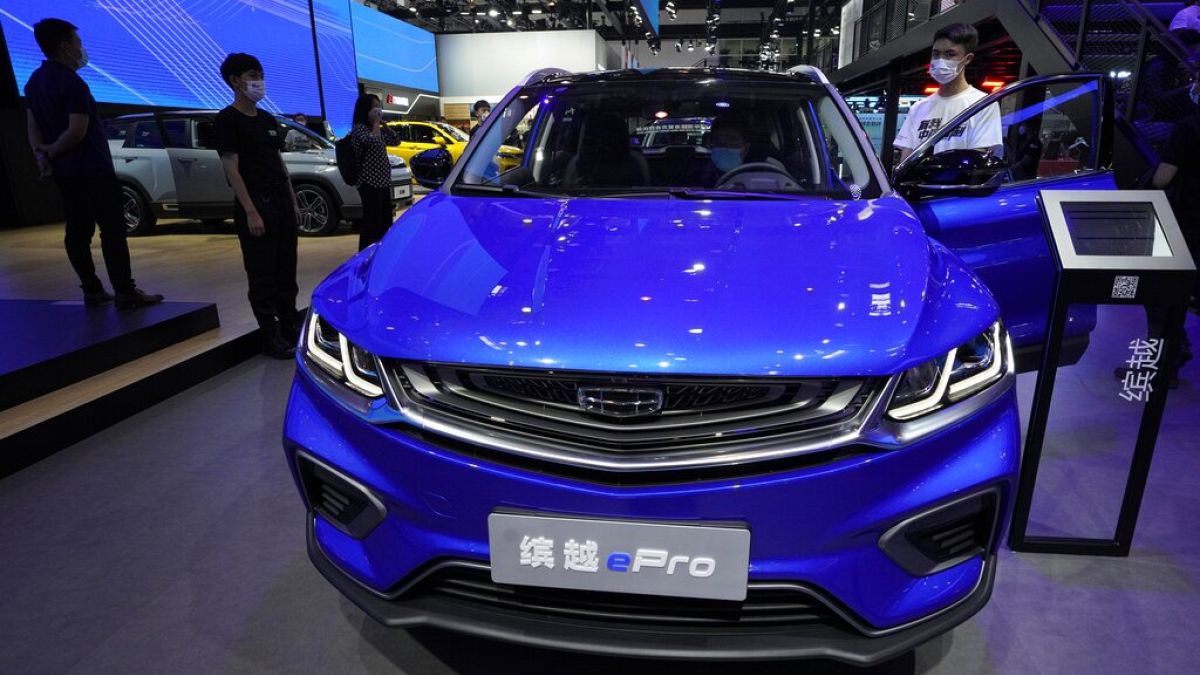China hits back at EU tariff hike on electric vehicles

Now that Europe has announced tariffs on China-made electric cars, the continent is bracing to see if the other shoe drops.
China has decried an EU decision to hike tariffs on Chinese electric vehicles as “a blatant act of protectionism”.
The European Commission, the EU’s executive arm, said that starting from early July, it would impose provisional tariffs that would slap Chinese automakers with additional duties as high as 38%, up from the current level of 10%, if talks with China do not lead to an effective solution.
Chinese Ministry of Commerce spokesperson He Yadong blasted the move on Thursday.
“It will not only damage the legitimate rights and interests of China’s electric vehicle industry, disrupt the mutually beneficial cooperation between China and Europe in new energy vehicles, but also will distort the global automotive industry and supply chains, including those of the EU,” he said at a weekly press briefing.
“It is a blatant act of protectionism,” he added.
The EU Commission said an investigation it opened last year found that the Chinese electric vehicle industry “benefits from unfair subsidisation, which is causing a threat of economic injury to EU (battery electric vehicle) producers.”
The proposed extra tariffs would vary by company. BYD would face an additional 17.4% charge; Geely, which owns Sweden’s Volvo, would be hit with a further 20%, while SAIC it would face a rate of 38.1%.
He said China reserves the right to present the case to the World Trade Organization and will take “all necessary measures to safeguard the legitimate rights and interests of Chinese enterprises”.
US President Joe Biden recently imposed major new tariffs on Chinese electric vehicles, advanced batteries, solar cells, steel, aluminium and medical equipment.
Biden said that Chinese government subsidies ensure the nation’s companies don’t have to turn a profit, giving them an unfair advantage in global trade.
‘Slow motion traffic accident’
Analysts have warned that there is a serious risk of a trade war, which would raise prices for consumers and hurting exporters and their workers in both Europe and China — even as each serves as a major market for the other.
“It’s a little bit like seeing a slow motion traffic accident unfolding,” Jens Eskelund, the president of the European Chamber of Commerce in China said earlier this year. “The accident has not happened yet and … it is still possible to find an off-ramp. It is getting urgent.”
China fired a warning shot in January, launching an anti-dumping investigation into European brandy exports including French cognac. France was a leading supporter of the EU investigation that resulted in Wednesday’s tariff announcement.
The EU is also investigating subsidies given to Chinese wind and solar companies and looking into suspicions that China is unfairly restricting access to the market for medical devices, a long-running complaint of European manufacturers.
Related
Brits forced to pay fee to visit these 30 countries…
UK tourists will be required to pay a fee to visit 30 countries in Europe under new European Union (EU) travel rules.The rules mean British holidaymakers will n
The beautiful European island with just 148 locals
Irakleia is a beautiful island in the Minor Cyclades of Greece, nestled in the heart of the Aegean Sea and just an hour away from Naxos. Officially recorded t
Warning issued for Brits flying easyJet and Ryanair to popular…
Passengers flying with Ryanair, easyJet and British Airways should expect disruption (Picture: Urbanandsport/NurPhoto via Getty Images) Passenge










